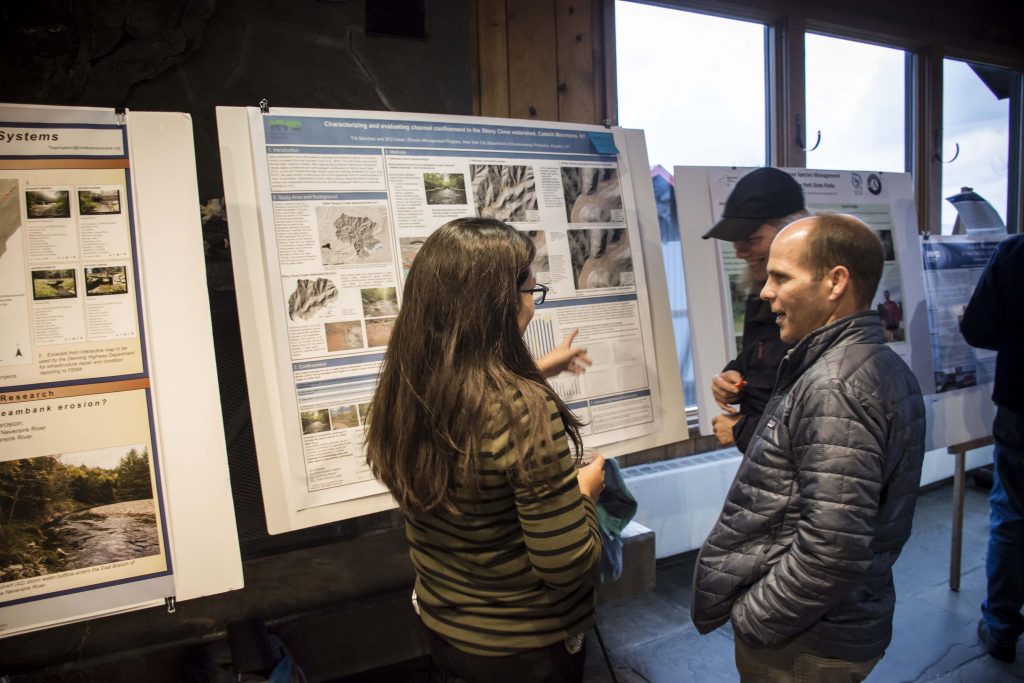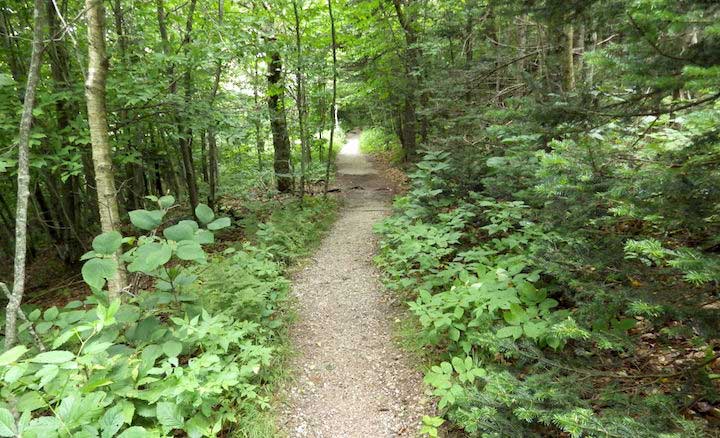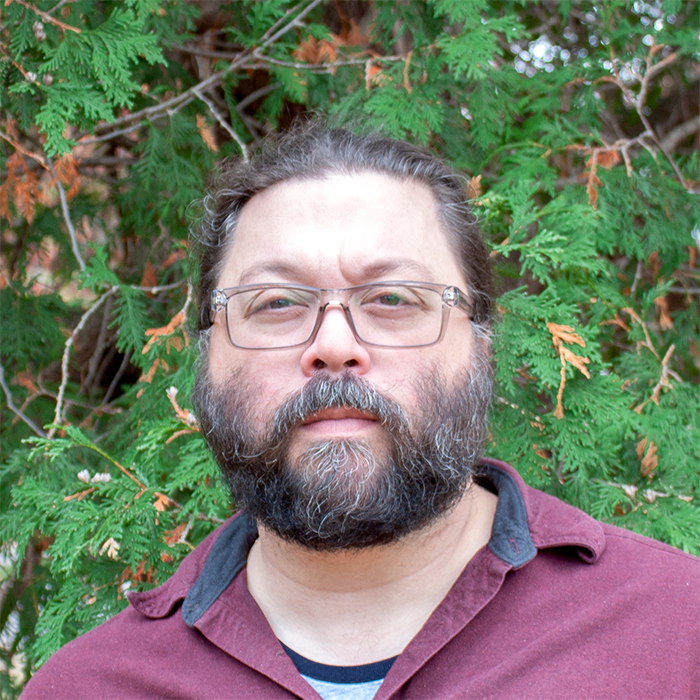
SHARED GROUND: COLLABORATIVE APPROACHES TO CATSKILLS
ENVIRONMENTAL RESEARCH
October 22-24, 2025
Belleayre Mountain, Highmount, NY
The Catskill Environmental Research and Monitoring (CERM) Conference program from October 22-24, 2025 featured a Keynote Address and two days of platform presentations. Evening activities included a Poster Session & Mixer and a Conference Dinner with speaker program. A Student Research Breakfast gave students and faculty mentors an opportunity to discuss research needs with local resource managers and funders. Several Field Trips to nearby locations provided opportunities for networking and collaboration.
See the full conference schedule below. Presentation slides made available for viewing by the author are highlighted with a bold blue color.
PROGRAM HIGHLIGHTS

Keynote Presentation (Day 1): Dr. Colin Beier
Does New York’s Path to ‘Net Zero’ Go Through the Catskills?
Mapping and monitoring climate benefits of Catskill forests and their role in achieving statewide carbon neutrality.
Watch a video of Dr. Beier’s presentation
The CERM Conference keynote presentation was delivered by Dr. Colin Beier. Dr. Beier shared a multifaceted look at the past, present, and potential future climate benefits provided by the forests of the Catskills region. Using high-resolution time-series maps developed in the NY Forest Carbon Assessment, he presented reconstruction of the last 30+ years of forest biomass, carbon, and land use dynamics across the region. Zooming in to local scales, he explored how and why forest carbon storage and sequestration has varied over space and time due to both natural and anthropogenic factors. Zooming out, he situated the Catskills in the context of the statewide forest carbon sink, the region’s role in achieving ‘net zero’ by 2050 targets, and opportunities and obstacles along the way. Last, he shared updates on models, data products, decision-tools and how ongoing partnerships are leveraging these outputs to advance practical and sustainable climate solutions.

About Colin Beier, PhD: Colin Beier is Director of the Climate & Applied Forest Research Institute (CAFRI) and Professor in the Department of Sustainable Resources Management at SUNY College of Environmental Science in Forestry (ESF), where he teaches forest ecology and coordinates the Forest Ecosystem Science degree program. He is an interdisciplinary ecologist who studies the resilience of forested landscapes in a rapidly changing world through applied and translational research meant to address complexity and support practical decision-making. Dr. Beier has co-authored over 75 refereed publications and has led or collaborated on dozens of research and service-oriented projects since joining ESF in 2007, often in partnership with state and federal agencies. Currently, he is lead investigator on long-term ecosystem monitoring programs at Huntington Forest in the Adirondacks (adk-ltm.org), as well as ongoing efforts building on and applying the outputs of the 2023 New York Forest Carbon Assessment. He received his PhD in systems ecology from University of Alaska-Fairbanks in 2007 and his MSc in forest ecology from Virginia Tech in 2002. He lives with his family on the unceded Onondaga territory currently known as Syracuse.
Dinner Presentation (Day 2): Dr. Uldis Roze

Catskills, Porcupines, Fishers
The CERM Conference Dinner Presenter was Dr. Uldis Roze. The Catskills region of New York is a region where humans and wildlife coexist. Humans typically occupy the river valleys, wildlife such as the porcupines occupy the forested mountains. Female porcupines have home ranges that are relatively small, permanent, and defended against other females. Male home ranges are large, changeable, and undefended. Dr. Roze presented the life history of a radio-collared female who was followed for 21 years and remains the oldest recorded wild porcupine. In 1976-79 the fisher, a porcupine predator, was introduced in the Southern Catskills. They reached his study area in the Northern Catskills in the 1980s. Porcupines of Northern Catskills have proved more resistant to fisher attack than shown in other studies of fisher-porcupine interactions.
Dr. Uldis Roze is Professor Emeritus of Queens College at the City University of New York and a foremost expert on the North American porcupine. Dr. Roze was faculty in the Department of Biology at Queens College from 1964-2003. He holds a PhD. from Washington University St. Louis and a BSc from the University of Chicago. In addition to numerous peer-reviewed publications, Dr. Roze has written several popular books on porcupine, including The North American Porcupine (2009) and Porcupines, the Animal Answer Guide (2012). Dr. Roze lives in the Catskills region of upstate New York where his studies continue.
Listen to a podcast of Dr. Roze with host Brett Barry exploring the fascinating world of the North America porcupine at https://www.kaatscast.com/porcupine-pursuits-with-uldis-roze/.
Read a book by Dr. Roze that is often cited in scholarly articles: https://www.cornellpress.cornell.edu/book/9780801446467/the-north-american-porcupine/#bookTabs=1.
Detailed Conference Program
(Subject to change due to federal government shutdown, some start times may vary)
Day 1 – Wednesday, October 22, 2025
| 8:00 | Registration and Conference Information Desk Open
|
| 9:00 | Conference Opening Remarks (Main Hall)
|
| 9:15 | Keynote Address (Main Hall) Does New York’s Path to ‘Net Zero’ Go Through the Catskills? Mapping and Monitoring Climate Benefits of Catskill Forests and their Role in Achieving Statewide Carbon Neutrality Dr. Colin Beier, Director of the Climate & Applied Forest Research Institute (CAFRI) and Professor in the Department of Sustainable Resources Management at SUNY College of Environmental Science and Forestry |
| 10:00 | Session 1 – Forests (Main Hall) Moderator: Joshua Ginsberg, Cary Institute of Ecosystem Studies
|
| 11:00 | Break |
| 11:20 | Session 1 – Forests (continued) Moderator: Joshua Ginsberg, Cary Institute of Ecosystem Studies
|
| 12:00 | Lunch |
| 1:00 | Poster Display Setup (Loft Room) |
| 1:30 | Session 2 – Climate, Forests, Carbon and Hydrology (Main Hall) Moderator: Frank Parisio, New York City Department of Environmental Protection
|
| 2:30 | Break |
| 3:00 | Session 2 – Climate, Forests, Carbon and Hydrology (Continued) Moderator: Frank Parisio, New York City Department of Environmental Protection
|
| 4:00 | Session 3 – Varied Presentations (Main Hall) Moderator: Stacie Howell, Sullivan County Soil and Water Conservation District
|
| 5:00 | Poster Session & Mixer (Loft Room) Cash bar and appetizers available. |
Day 2 – Thursday, October 23, 2025
| 8:00 | Registration and Conference Information Desk Open Continental Breakfast Available |
| 9:00 | Conference Opening (Main Hall) Opening Remarks: Leslie Zucker, Cornell Cooperative Extension Ulster County |
| 9:10 | Session 4 – Streams and Sediment (Main Hall) Moderator: Dany Davis, New York City Department of Environmental Protection
|
| 10:10 | Break |
| 10:40 | Session 5 – Water Quality and Quantity (Main Hall) Moderator: Barry Baldigo, U.S. Geological Survey, Emeritus
|
| 12:00 | Lunch |
| 1:45 | Session 6 – New Technologies and Methods Moderator: Mark Vian, Retired New York City Department of Environmental Protection
|
| 2:45 | Break |
| 3:15 | Session 7 – Human Induced Impacts on Managed Lands (Main Hall) Moderator: Tim Howard, NY Natural Heritage Program
|
| 4:00 | Session 8 – Environmental Management: Challenges and Success Stories (Main Hall) Moderator: Joy Damon, Cary Institute of Ecosystem Studies
|
| 5:00 | Networking Event (Main Hall and Patio) (Cash bar available) |
| 6:00 | Speaker Dinner (Main Hall) Catskills, Porcupines, Fishers Speaker: Dr. Uldis Roze, Professor Emeritus of Queens College at the City University of New York and a foremost expert on the North American porcupine Dinner catered by the Phoenicia Diner |
Day 3 – Friday, October 24, 2025
| 8:00 | Registration and Conference Information Desk Open Hot Buffet Breakfast from 8:00-10:00 |
| 9:00 | Student Research Symposium (Loft Room) |
| 10:00 | Field Trip Assembly (Main Hall) Field Trip carpooling departs from Belleayre at 10:30 |
| 11:00 | Field Trips Field Trip 1 – In the Shelter of the Mountains: Native People and Catskill Mountain Ecosystems Field Trip 2 – Reconstructing Environmental Histories. Field Trip carpooling returns to Belleayre by 4:30 |
| 4:30 | Conclusion of CERM 2025. |
